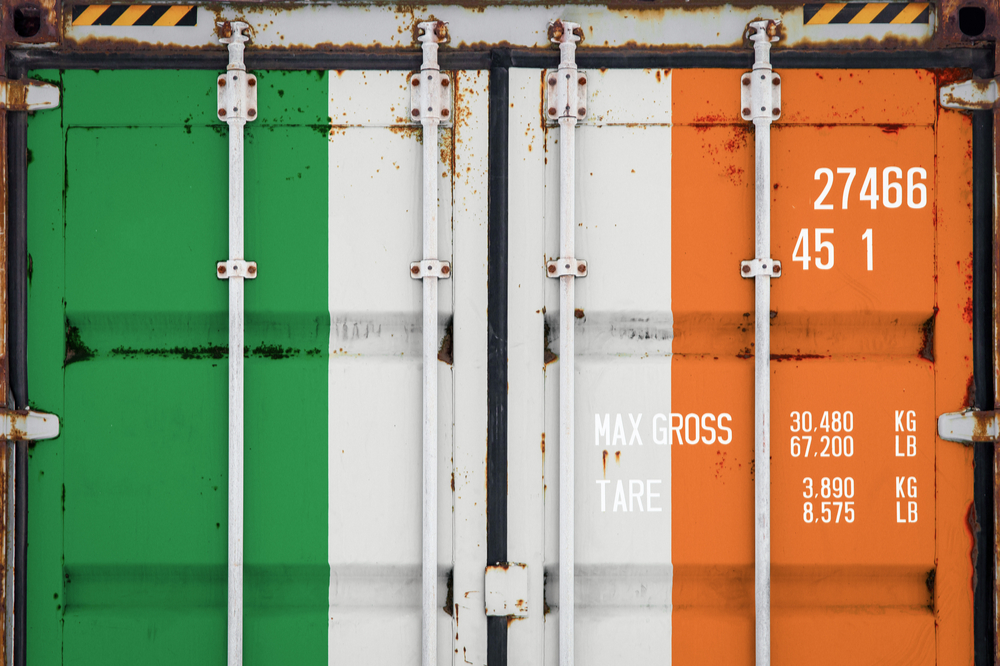Value and volume growth boost exports by 22% in 2022, Bord Bia reports.
The value of Ireland’s food, drink and horticulture exports increased by 22% last year to reach a new record high of €16.7bn.
The significant increase in food and drink exports, up €3bn since 2021 and almost 30% on pre-pandemic levels (€13bn in 2019), can be attributed to both increasing unit prices, due to inflation and rising input and operational costs, and an increase in the volume of goods exported.
“Against the backdrop of this difficult global trading environment, Ireland has continued to maintain its reputation as a world-class sustainable food producer and supplier”
The volume of exports for sectors such as Irish beef and dairy increased in 2022; while prepared consumer foods (PCF) and drinks achieved new milestones in the value of their respective exports.
Value added meat and seafood exports, captured under PCF, reached over €1bn in 2022. This represented an increase of 30% compared with the previous year, with exports surpassing pre Covid-19 levels by 23%. Within meat, this subcategory represents a vitally important outlet for traditionally lower value cuts.
Beating cost and sourcing challenges
“I’m proud to announce today’s excellent results, which were delivered amid a profoundly challenging year for the sector, most notably the impact of the war in Ukraine, inflationary pressures on producers, and ongoing Covid-19 disruptions to the global supply chain,” the Minister for Agriculture, Food and the Marine, Charlie McConalogue, TD, said.
“Against the backdrop of this difficult global trading environment, Ireland has continued to maintain its reputation as a world-class sustainable food producer and supplier, while also successfully securing new business in new markets around the world. I would like to congratulate the companies, farmers, fishers, and producers who have contributed to this performance, which would not have been possible without the strategic support that Bord Bia provides to the sector.”
The Department of Agriculture, Food and the Marine, estimates that total Irish agri-food exports, including non-edible products not included within Bord Bia’s report, to have been worth €18.7bn in 2022, representing a 21% year-on-year increase.
Bord Bia CEO Jim O’Toole echoed the Minister’s sentiments and said the industry’s performance in the face of such challenging market conditions has been highly commendable.
“In my first Export Performance and Prospects Report as CEO of Bord Bia, I’m delighted to welcome the highest ever value of exports by the Irish food, drink and horticulture sector. Following two years of profound disruption, 2022 brought a new range of cost and sourcing challenges, making this year’s export performance even more impressive. Today’s results are testament to the resilience of one of Ireland’s most important export industries.”
Looking ahead, O’Toole said that the industry needs to be responsive to a range of oncoming challenges in 2023, as the challenging trading conditions of this year will endure and evolve.
“As 2023 is predicted to be another disruptive year of economic difficulty and challenging supply chains, Bord Bia will continue to be agile and responsive to client and sector needs in what is likely to be a period of ongoing volatility. For Irish food and drink exporters, it will be increasingly important to be aware of how consumers respond to the current cost of living crisis and to position their products accordingly.”
Sectoral highlights
- Irish dairy exports were valued at €6.8bn last year, a year-on-year value increase of 33% or €1.7bn, driven mainly by Irish butter (up 26% in value) and cheese (up 25% in value). Dairy remains the largest element within Irish food and drink exports, with over 1.7 million tonnes of product shipped to over 130 markets worldwide.
- This was followed by the meat and livestock sector, with exports valued at over €4bn representing a 15% value increase (+€520 million) compared to 2021. Although product prices increased across all meat species, this robust performance also reflects increases in output levels and average prices within the beef and sheepmeat sectors. Irish beef exports were the largest contributor to the meat sector, valued at €2.5bn, an increase of €384 million or 18% on 2021 levels. The value of Irish livestock exports grew by 8% in 2022 to reach an estimated €230 million. There were approximately 285,000 head of live cattle exported, which represented a 15% year-on-year increase.
- In 2022, prepared consumer food (PCF) export values exceeded €3bn, in a performance that was largely driven by the reopening of foodservice as Covid-19 restrictions lifted in early 2022 across key markets. Inflation played a significant role in this value increase, which was up 17% compared to 2021 levels, as volatility in input costs and rising energy prices curtailed new growth opportunities in the UK and European markets.
- Meanwhile, Irish drink exports reached almost €2bn (+22% year-on-year) for the first time, a 25% value increase on pre-pandemic (2019) levels, which reflects the extraordinary recovery and now growth of the sector following difficult years in 2020 and 2021. North America continues to be the key export market, representing 52% of overall exports at just under €1bn. Irish whiskey exports accounted for 60% of the overall value growth last year, with exports valued at almost at €1bn (up 25% on 2021) for the first time.
- Improved prices helped drive the performance in Irish seafood with export values increasing by 3% (or €17 million) year-on-year to reach €530 million. This was despite a 19% decrease in volumes exported, reflecting the challenging situation faced by Irish seafood exporters in securing supply.
- Finally, exports of Irish horticulture and cereals exceeded €300 million, with mushrooms, largely destined for the UK, accounting for 50% or €152 million (-6% on 2021), while cereals exports were valued at €73 million (+10% on 2021).
Export destinations
- Maintaining a diverse range of markets and channels around the world has been key to the success and continued growth of Ireland’s food and drink exports. In 2022, more than one-third (34%) of Ireland’s total food and drink exports in value terms were destined for international markets, while the EU and UK accounted for 34% and 32% respectively.
- The UK remains the largest single country market for Irish food and drink exports, with exports valued at an estimated €5.4bn in 2022, an increase of 20% on 2021 levels. Irish exporters have navigated their way through considerable uncertainty in terms of the new trading environment with the UK, and more recently a rapidly slowing British economy.
- In value terms, Irish food and drink exports to the EU increased by 29% to reach €5.7bn last year, and for international markets, the value increased by 23% to reach €5.6bn.
- Exports to the US increased by almost 40% to more than €2bn, and while China’s Covid restrictions contributed to a decline in exports to China, growth in the value of exports to the Philippines, India, Malaysia and Japan more than offset this decline. Overall, Ireland’s food and drink exports to Asia increased by 9% to €1.5bn.






